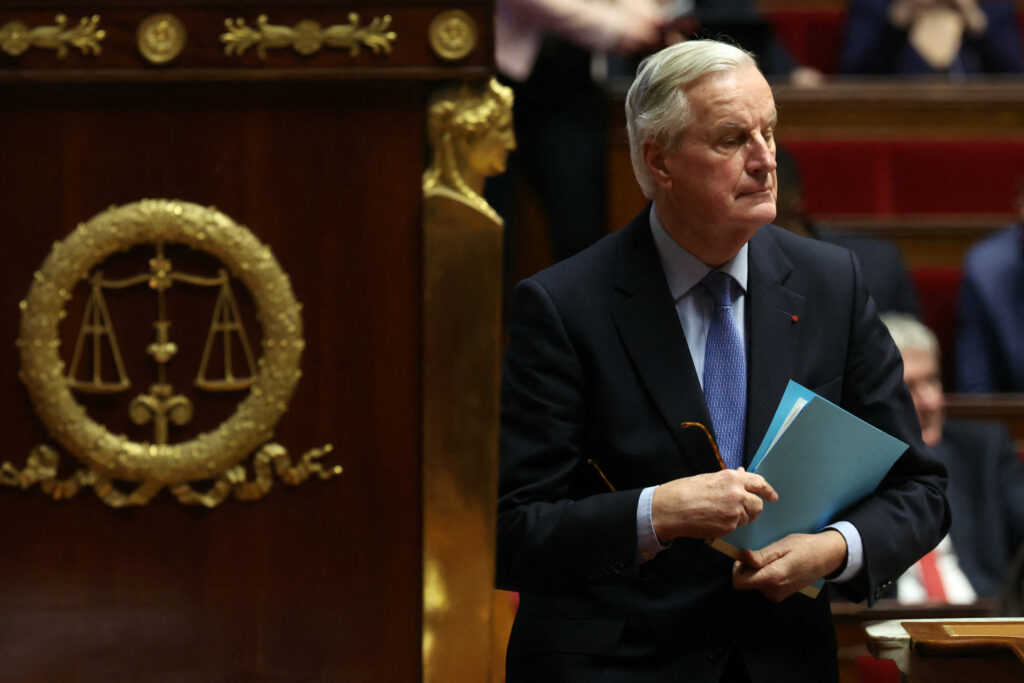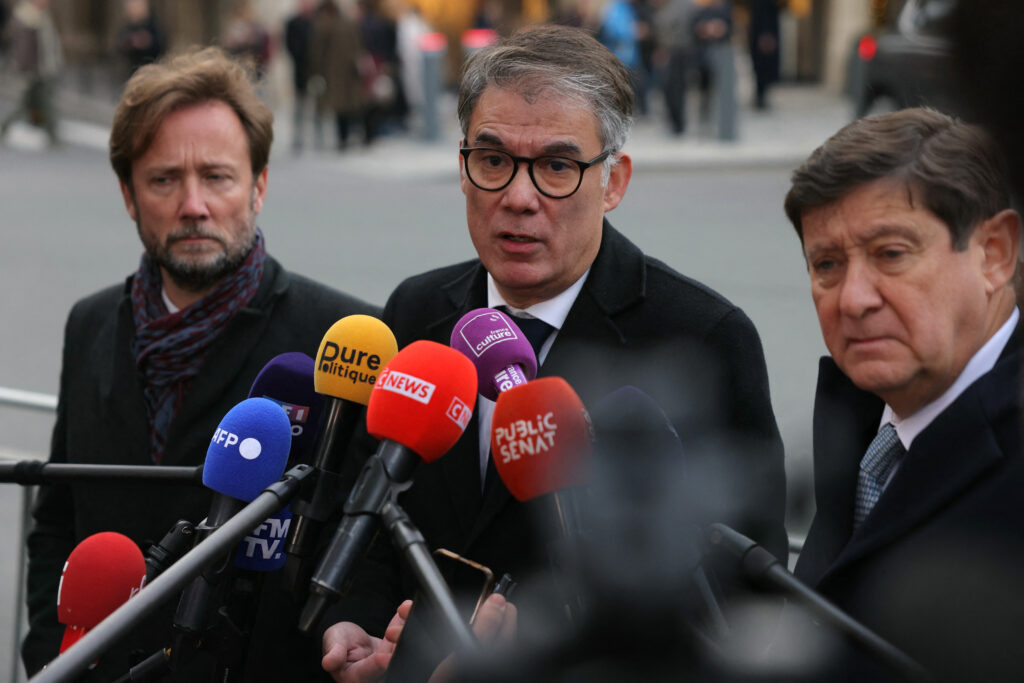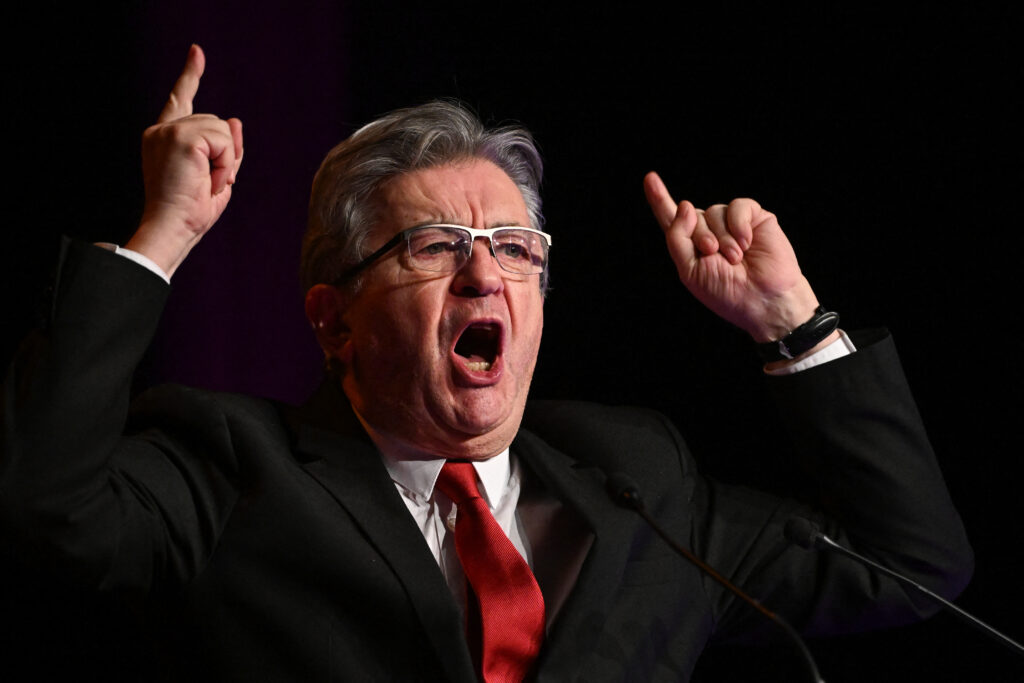Brussels – It is a hectic time in Paris, with frantic negotiations underway to form a new government after the fall of Michel Barnier, the shortest-lived in the Fifth Republic. President Emmanuel Macron assured yesterday (Dec. 10) that by tomorrow, he will pull a name out of his hat to lead the next executive, which, in his plans, should obtain the support of the entire parliamentary arc except for the radical left and the far right, and which will have to give the country a budget for the coming year.
In previous episodes
On Dec. 4, Barnier lost a vote of confidence in the National Assembly, the lower house of the transalpine legislature. The former European commissioner and EU Brexit negotiator stumbled over the budget plan for 2025. French public accounts (but also the differential with German 10-year treasury bonds) are now scaring the Eurozone with contagion risks.
Last weekend the reopening of the Notre Dame Cathedral in Paris was in the spotlight, with Macron welcoming heads of state and government from all over the world (including Italian President Sergio Mattarella, US President-elect Donald Trump, Ukrainian President Volodymyr Zelensky, and Georgia’s Salomé Zourabichvili) to try to prove that he still counts on the international stage after the historical signing, by Ursula von der Leyen, of the EU-Mercosur trade agreement, which France has always fiercely opposed but which, in the end, monsieur le Président did not manage to prevent.

Uphill battle
Then, as the week began, domestic politics returned as the main concern. Yesterday, Macron welcomed at the Elysee Palace representatives of the political forces in the hemicycle to work out a “method contract” to bring as many parties as possible together to support a government of national unity and help France emerge from its worst political crisis in the Cinquième République. Indeed, the head of state calling for consultations is an unusual practice beyond the Alps.
Macron is aiming for a centrist consensus ranging at least from the Socialists (PS-PL)of Raphaël Glucksmann and Olivier Faure to Les Républicains (LR), the neo-Gaullist party of which Barnier is a member, passing, of course, through the presidential coalition Ensemble. Together, these groups could count on about 280 seats in the House, with the Elysée head hoping that the 55 elected representatives among the ecologists and communists could join their ranks. From them, the head of state expects — if not direct support for the executive — at least a commitment not to censure it again. The threshold for an absolute majority is 288 out of 575.
Beyond the numbers, however, reaching an agreement will be far from easy. The forces of the variegated transalpine center-left united in the Nouveau front populaire (NFP) continue to urge for a progressive exponent to be installed at Palais Matignon, the seat of government, both to respect the results of the July election and turn the page decisively on the Barnier experiment, replacing the historical face of transalpine conservatism with a new personality. However, between the parliamentary groups, there seems to be a wall-to-wall. LR does not seem willing to govern with the progressives, who are also doubtful about the feasibility of a broad-based government.

According to media reports, the most likely candidate to replace Barnier is François Bayrou. He is the 73-year-old leader of the Mouvement démocrate (MoDem), one of the Macronist coalition parties that holds 36 seats out of Ensemble‘s 166 total. Bayrou has seen Macron several times recently, with nothing leaking about the content of their meetings.
Divide and conquer
However, not everyone was invited to the consultations. According to a precise strategy of the liberal head of state, “les extrèmes” were kept out of the door: the radical left wing of La France Insoumise (LFI), led by Jean-Luc Mélenchon, and the far-right of the Rassemblement National (RN) of Marine Le Pen and Jordan Bardella. According to sources in the Elysée Palace, Macron aims to “no longer depend” on the RN, which has, so far, made its mark in the hemicycle, whether or not associating itself with motions presented by the left, ensuring some stability for the head of state, who has reiterated that he wants to complete his term, expiring in 2027.
It is evident, moreover, that the president’s other goal is to break the unity of the NFP, the united left front that is not so united after all since its different souls have always struggled to coexist, in particular, due to the assertive nature of Mélenchon, leader of the party that was rewarded the most in the elections (LFI has 72 seats in the Assembly) but unpalatable especially for the Socialists, who traditionally have a governing vocation. According to national newspaper reports, the Insoumis is reportedly trying to “unseat” the environmentalists (and perhaps the communists as well) from the social democrats, isolating the latter entirely.

The crux of the budget
Whatever its final composition, the main task of the new executive will be to pass a budget law for 2025. In these hours, the last council of ministers of the resigning government is taking place precisely regarding next year’s budget. The outcome should be a “special draft law” to ensure the continuity of state operations from January: the Assembly will consider this document on December 16, and the Senate two days later.
According to French media reports, the text would be cut to the bone, authorizing the government to raise taxes and spend the appropriations already decided in the 2024 budget. The most delicate step will likely be, once again, indexing pensions and income taxes to inflation, as demanded by RN: a scheme that the Macronists reject, however, and that the Council of State itself reportedly rejected, ruling out the possibility of including it in the special draft budget.
English version by the Translation Service of Withub



![La presidente della Bce, Christine Lagarde [Francoforte, 6 marzo 2025]](https://www.eunews.it/wp-content/uploads/2025/03/lagarde-250306-120x86.png)

![Un atomo. L'Ue punta sul nucleare di nuova generazione per il suo futuro energetico [foto: iStock]](https://www.eunews.it/wp-content/uploads/2025/04/atomo-120x86.jpeg)
